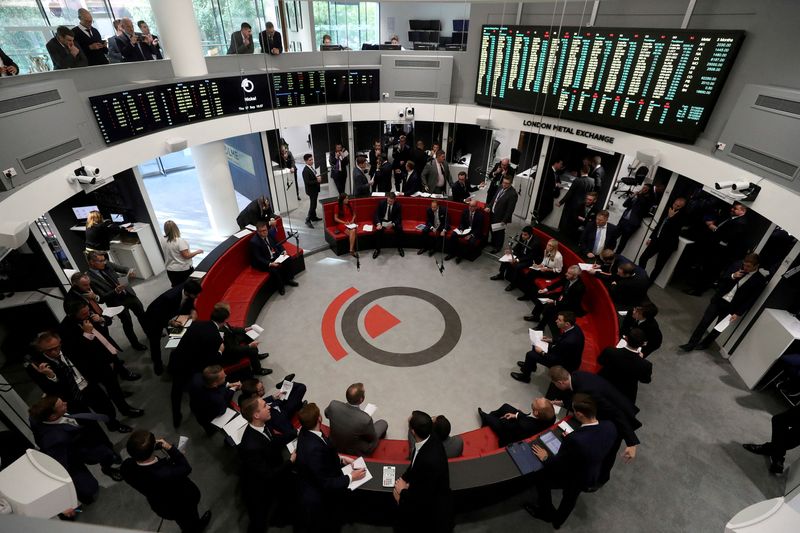LONDON (Reuters) -Russian aluminium's share of stocks in warehouses registered with the London Metal Exchange (LME) rose to 68% in May from 52% in April, data from the exchange showed on Monday, as traders reported increased demand for Indian metal as an alternative.
The world's oldest exchange and largest market for industrial metals has not banned Russian metals from being traded and stored in its system since Moscow invaded Ukraine, as there are no Western sanctions on Russian base metals.
Large amounts of Russian aluminium in LME warehouses is a concern for the industry because it could distort pricing on the exchange used as a benchmark for contracts between producers, consumers and traders.
Russian aluminium producer Rusal alone accounts for 5.4% of global supplies estimated at around 70 million tonnes this year.
In May there was a total of 263,125 tonnes of Russian aluminium in LME warehouses, data from the exchange showed, while Indian-origin aluminium amounted to 30%, or 116,800 tonnes, in May from 46.5% in April.
Traders say strong demand for aluminium produced in India was due to many consumers in the transport, packaging and construction industries looking for alternatives to metal supplies from Russia.
The LME said that Russian aluminium continues to flow through its network as of the 45,300 tonnes of primary aluminium loaded-out last month, 54% was Russian metal.
A meaningful set of global consumers continue to accept Russian metal, it added.
Of the 57,925 tonnes of primary aluminium on LME warrant in May, 67% was Russian, the LME said. A warrant is an ownership document for metal in LME-registered warehouses. Cancelling warrants indicates an intention to take delivery of metal from the warehouses unless it is rewarranted.

Of the 167,550 tonnes of primary aluminium warrants cancelled, 19% was Russian and 81% non-Russian in May, the LME said, adding that most of this cancelled stock remains in the warehouse.
The LME report also showed that as of May 31, the share of Russian copper stocks fell to 33% from 36% in April, or 29,600 tonnes, while nickel was stable at 20%, or 7,224 tonnes.